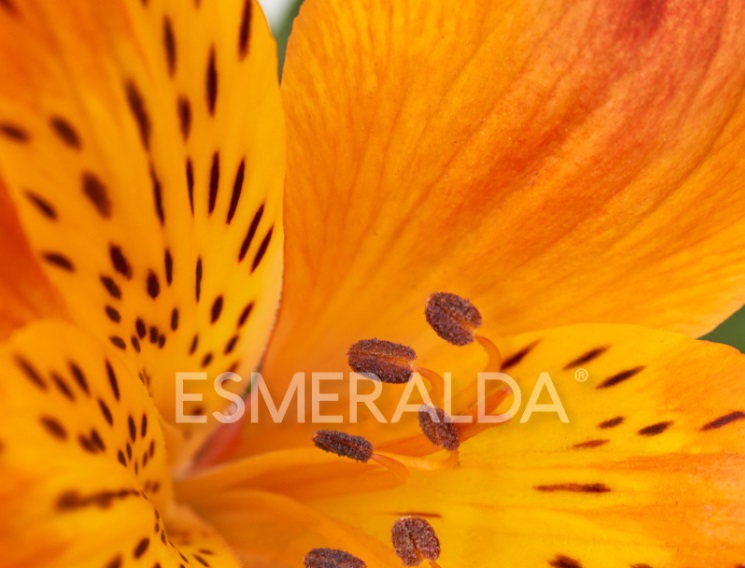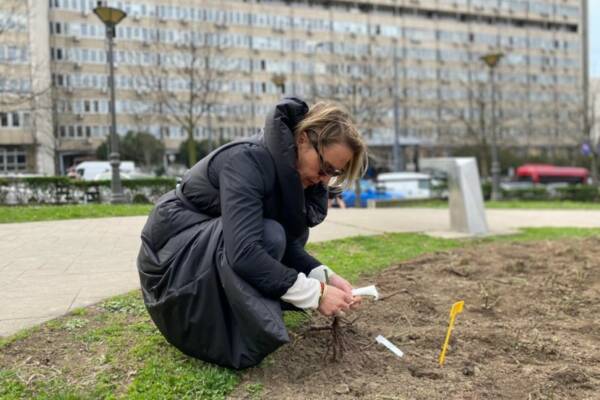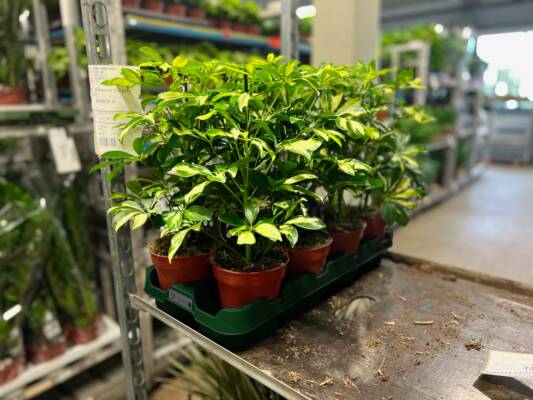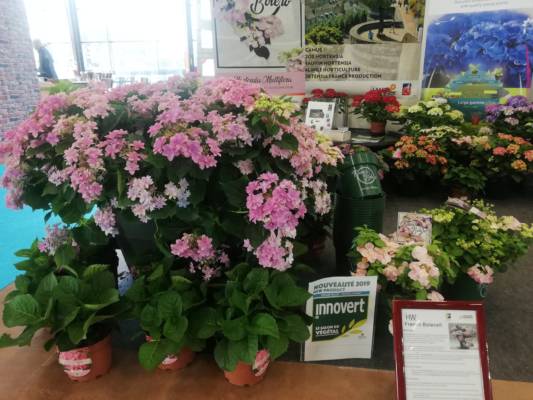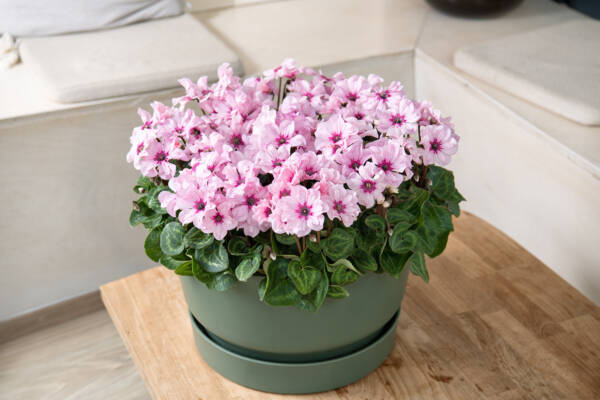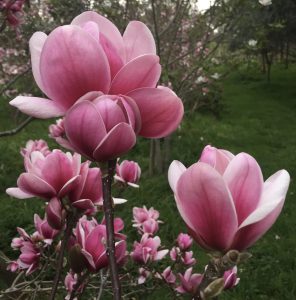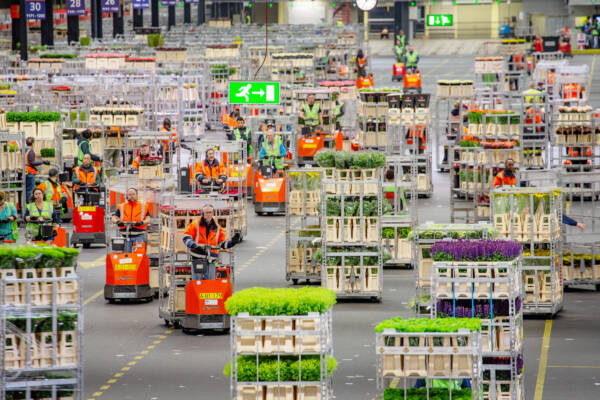FCI’s Colombian correspondent Marta Pizano sits down with John Simko, president and CEO of Sunshine Bouquet, the company that on 26 June announced: “a definitive agreement pursuant to which Sunshine Bouquet will acquire all the operations of the Esmeralda Group in Ecuador, Colombia and the United States.”
Looking like a shining example of vertical integration, this move will bring together production, supermarket sales and wholesalers under one roof, creating a giant that is set to be a true game-changer in the global floriculture scene. To get further insight into how this acquisition came by, the goals pursued, envisioned developments and the overall strategy and challenges involved, FCI interviewed John Simko, who comes from a long tradition of flower production and sales.
John’s grandfather started a cut flower operation in New Jersey, USA in 1936, a business that was continued by his parents who soon developed it into a prime supplier of cut chrysanthemums. By the 1960s, however, the Simkos realised that strong competition was coming their way, initially from US states with a milder climate like California and Florida, then from abroad with developments taking root in Colombia and Ecuador.
They quickly realised that the flower business was undergoing deep change and with great vision, in 1971 sold the growing operation and started a flower retail/wholesale business, with the purpose of supplying high quality imported cut flowers to their customers, at accessible prices. “They sold carnations at 25c (of a US dollar) per stem, which was considered accessible”, says John amusedly, “fifty years later you get that same price if you’re lucky!”
Eventually, John bought the business from his parents, continuing the retail/wholesale business. He soon saw there were opportunities in the mass market, and aware that the good quality is determined by the source of the product, in 1985 he established a Sunshine Bouquet division in Colombia; in 2001 they purchased their first farm, and through additional purchases have grown steadily since then. “To me, supermarket sales grew a la par with cut flower production in South America”, he tells me.
The conversation turns to the present time. Why the acquisition and why the Esmeralda Group? “I met Peter Ullrich (founder of Esmeralda Group) in 1980, so our friendship went way, way back,” John says, “I always admired his entrepreneurship, the quality of the flowers coming out of his farms, his grasp of the business and his vision.”
By coincidence, Peter’s flower wholesale operation – CFX – started operating in New York in 1971, the same year John’s parents opened their marketing company, and they were amongst Peter’s first customers. Fast forward to 2019, we come to the Proflora show in Bogotá, Colombia, where John met Clarisse Ullrich (Peter Ullrich’s widow). “Peter’s sudden death in 2016 had a huge impact on the Esmeralda Group,” states John, “Clarisse and I got talking and a project started to take shape.”
Through the acquisition, Sunshine and Esmeralda bring together about 1200ha of production (and counting; John is looking at reaching 1400 ha). “For some time now, we wanted a presence in Medellín (Colombia) and also in Ecuador, to round up the business; there was no better way to achieve this than through this acquisition”, says John, making reference to the beautiful farms Esmeralda Group holds in these two locations.
The Ecuadorian farms now make Sunshine the largest flower grower/ exporter in Ecuador. How will the new company operate? “Sunshine and Esmeralda will keep their identities,” says John, adding that he took this step in order to build, enhance and develop, not to disrupt great achievements that have already been reached.
The idea is to blend together the strong leadership and expertise in the mass floral market Sunshine already holds, with the innovation, image, great quality and solid network of wholesale distributors of Esmeralda. The only branch that will disappear is Connectaflor, Esmeralda’s Miami based distributor for North America, which stopped operating in August 2020. Esmeralda staff will continue to cater to wholesalers and international markets, without any substantial changes. “It’s a fantastic, highly efficient team and the name is held in very high regard,” John declares. There will, of course, be some necessary back-end consolidation, but they will keep the two brands, in addition to Nature’s Flowers which Sunshine purchased some time ago.
John then explains that an important point is that they did not acquire the breeding operation from Esmeralda. “In more than one way, that is a different business, involving research, cultivar trials, selection and other specialised tasks. It is geared at a different customer too. We will develop a strong partnership and collaboration with Esmeralda Breeding, through which we will get exclusive use of certain varieties; but they will continue to operate independently.”
Challenges? “Not really”, says John, “believe it or not I am working less than before, and thoroughly enjoying it!”
There is, of course, a lot of work involved and impeccable logistics are needed, he concedes, but “at the risk of sounding redundant, it’s all about best practices and good service. Due to our size, capacity and volume, we have become key customers to suppliers and service providers”, John says. He adds, “We can make things happen when they need to happen.”
At the onset of the Covid-19 crisis for example, when cargo capacity became limited and exporters were scrambling to ship flowers, Sunshine was able to charter their own planes delivering flowers to their customers on time. Other hurdles they have faced as a result of the pandemic? “We have come across various crises along the way: revaluation of the Colombian peso, 9/11, economic depressions; this is another crisis and we need to brace it.”
It has of course been a devastating, terrible thing the world is facing. But considering that Sunshine has thrown away at the most 20 million flower stems, he feels they have fared well; that really is not very much for such a large company. They have not cancelled any contracts or dismissed any staff. They have focused strongly on future sales, and these look very good. Of course, like everyone else, they took a hit from Covid-19, but they have bounced back nicely.
Demand for flowers is strong. “I guess people like to see pretty beautiful flowers when they have to stay home,” he says. In ending our conversation, John expresses his overall satisfaction with his long time in the flower business. He is a true believer in the benefits flowers can bring to people, both customers and workers. “At Sunshine Bouquet, we are already providing close to 15,000 jobs; with Esmeralda coming on board we will add 2000 to 3000 more. To think that we are helping so many people make a living, particularly at a time of crisis, gives me enormous satisfaction.”
John Simko was one of the keynote speakers at the AIPH Recovery from Crisis – the future for Ornamentals conference on 15 September. Here, he shared his perspective on how the retail market for flowers has been impacted by the Covid-19 pandemic, how it will develop in the future and how the supply chain needs to respond. To find out more visit www.aiph.org/conference-2020





















